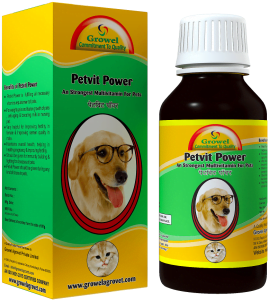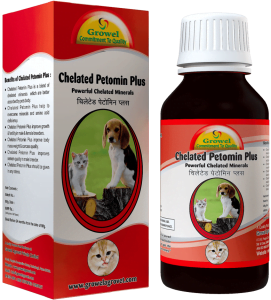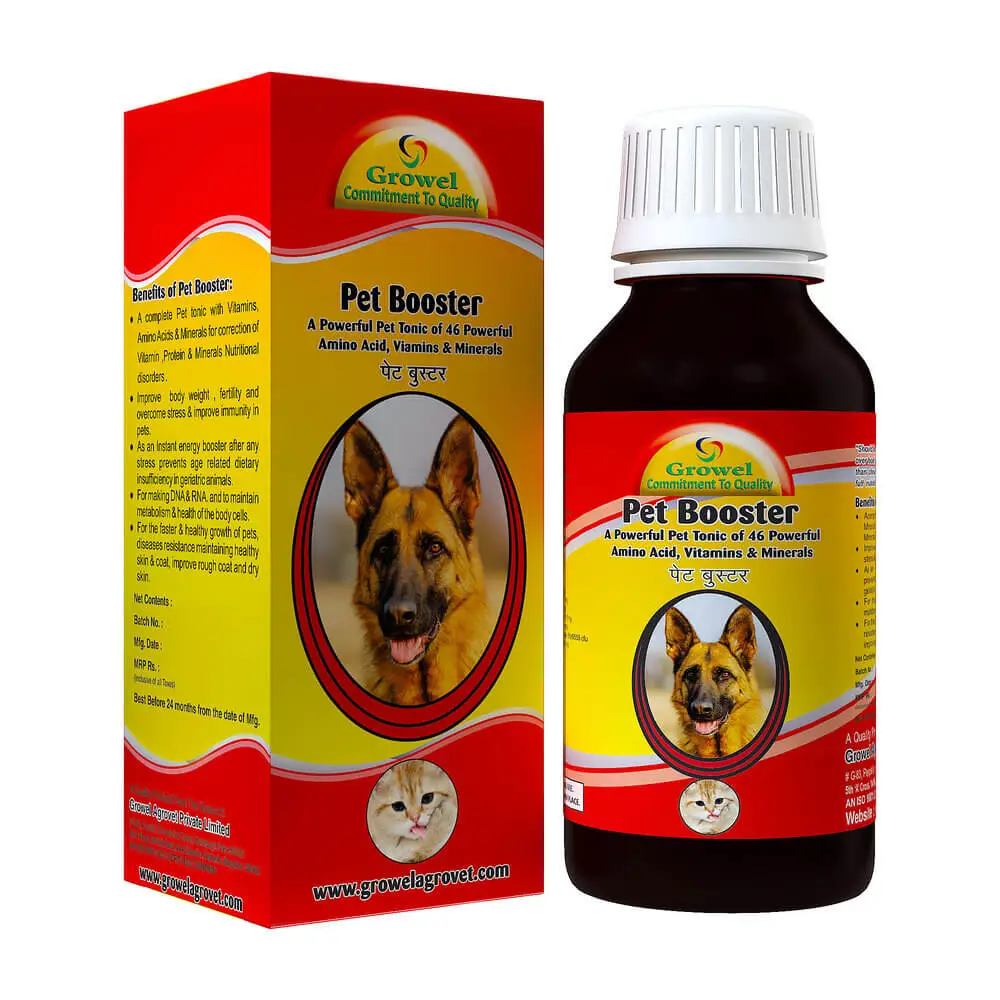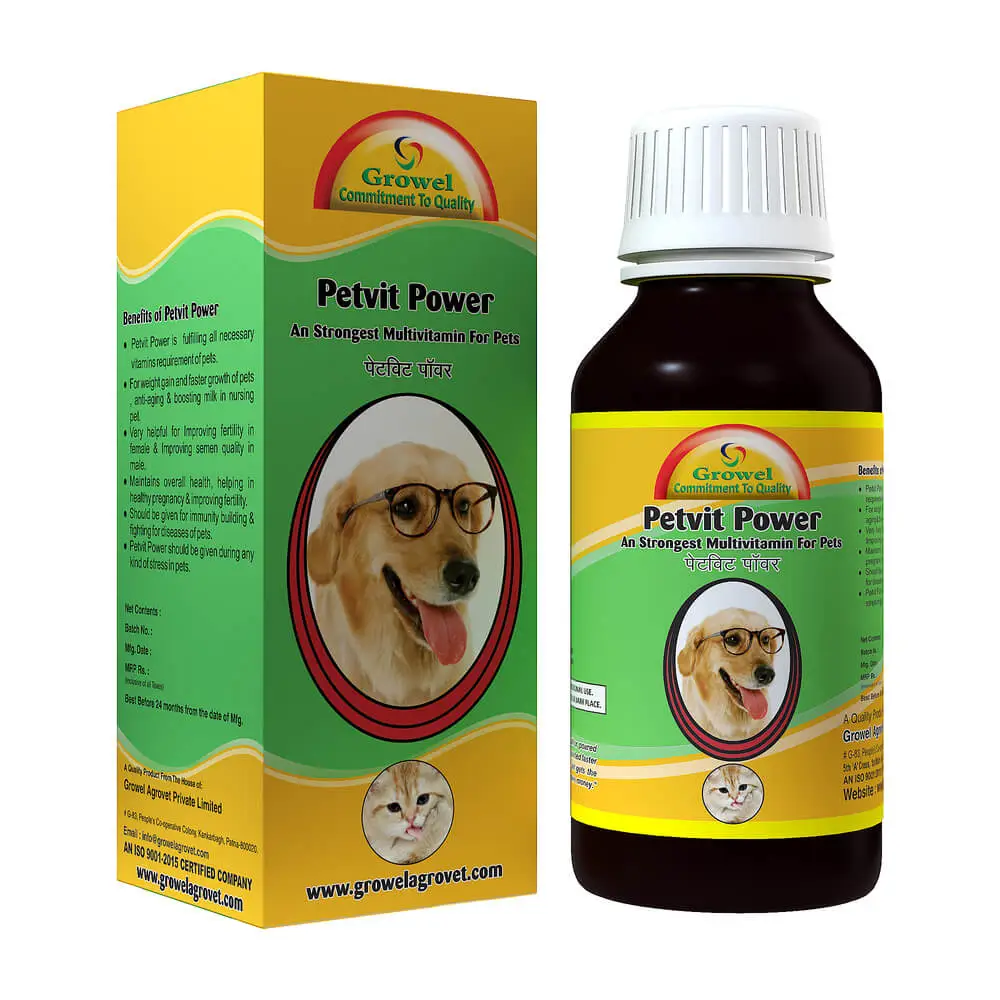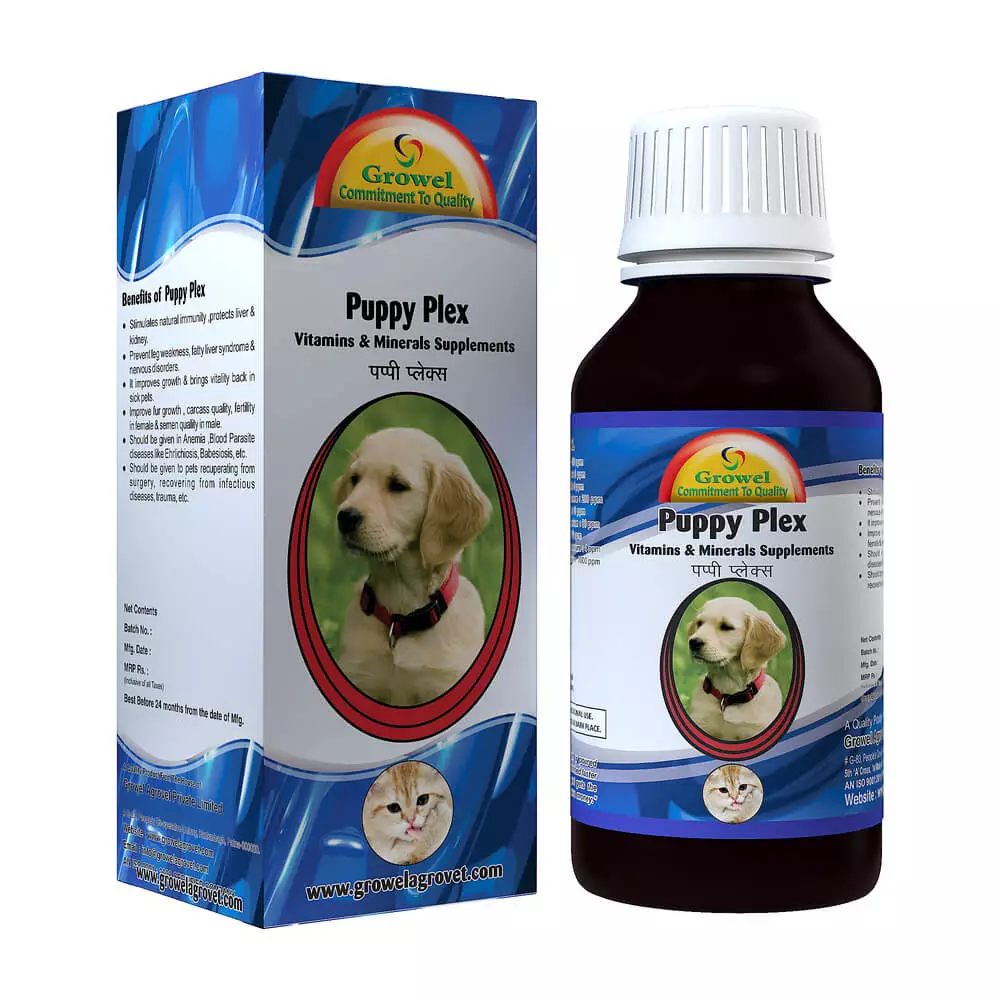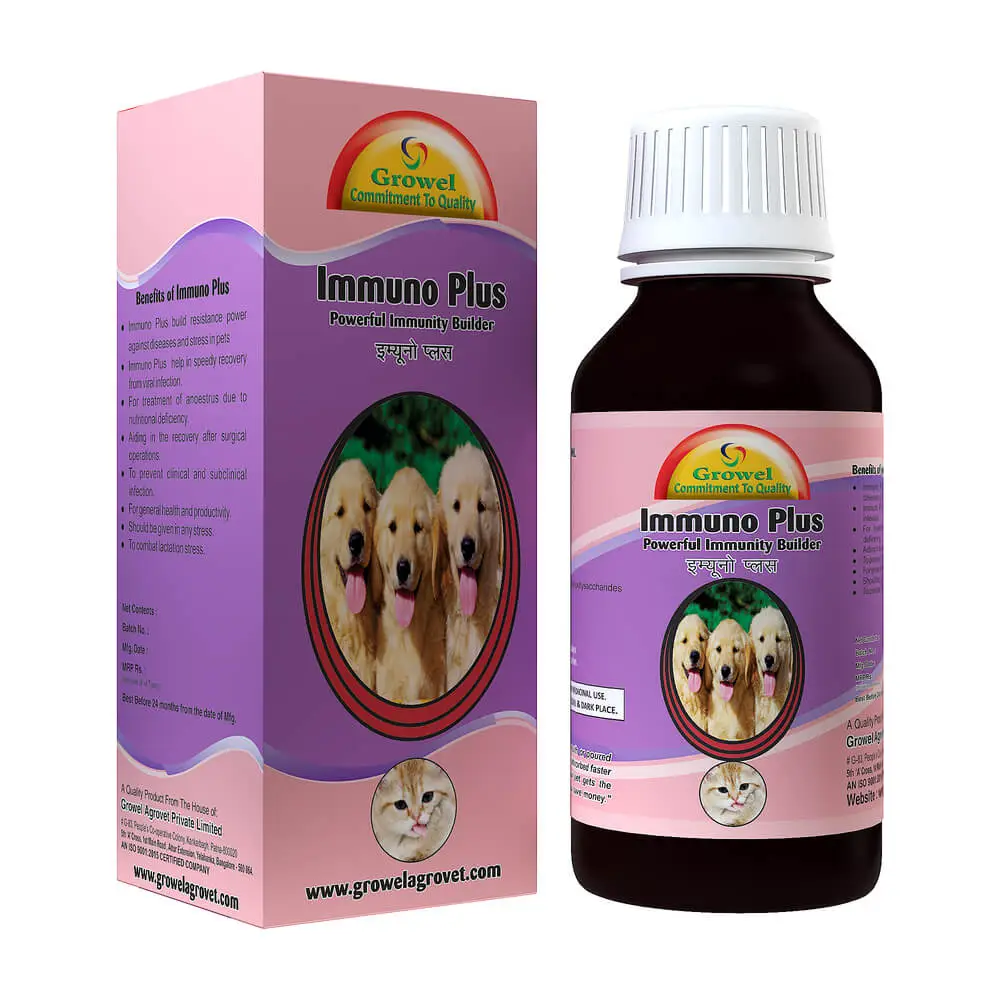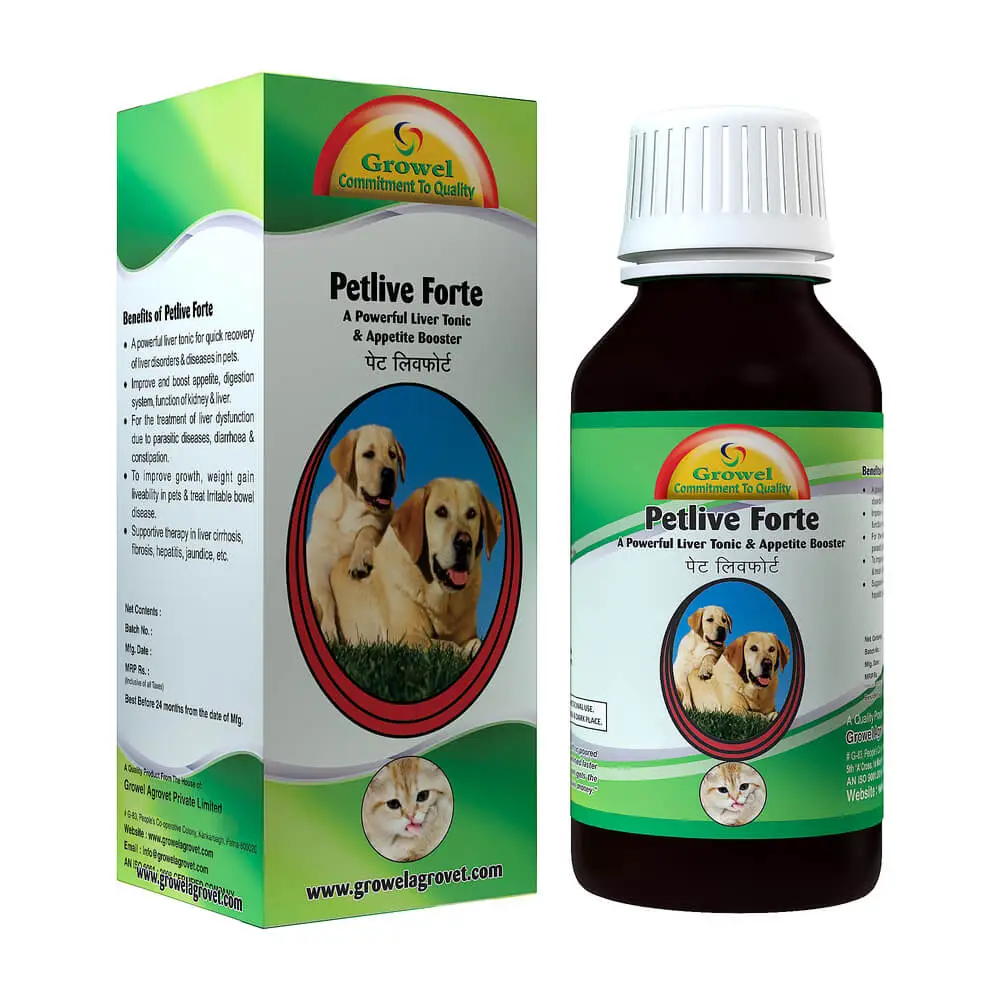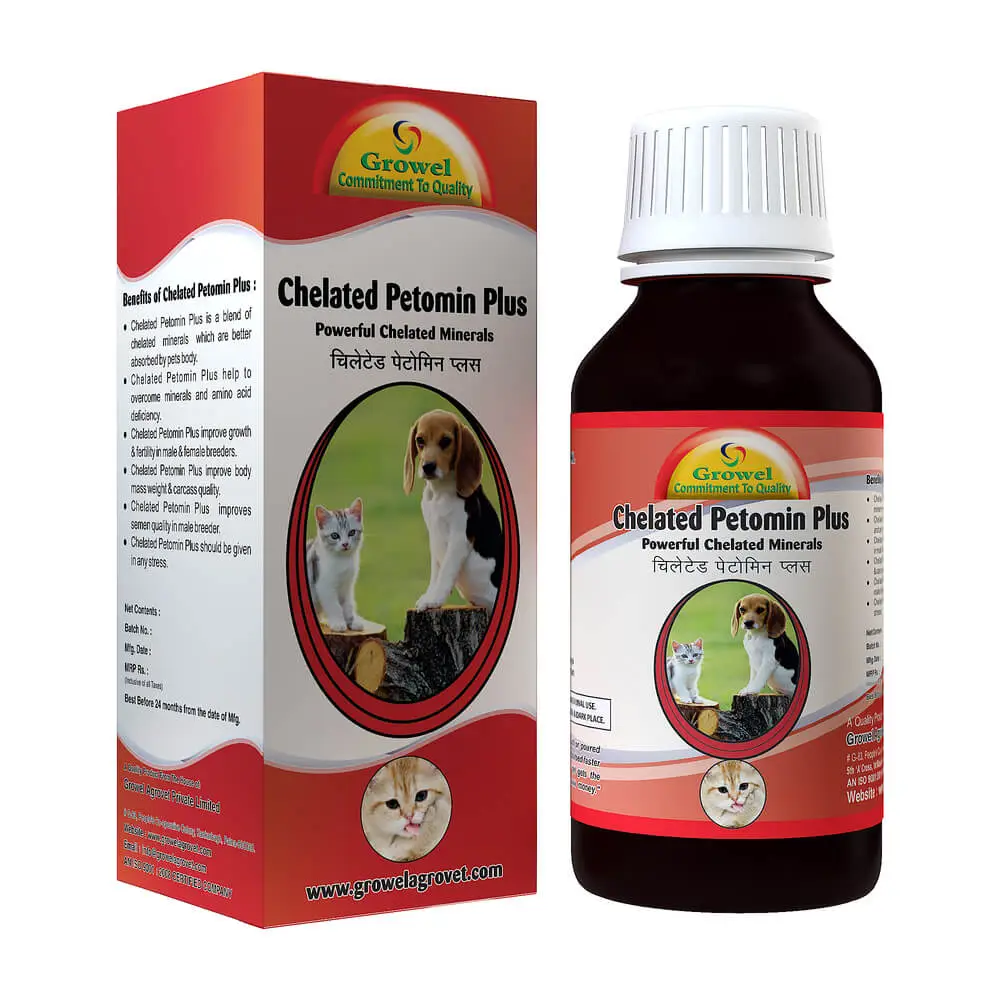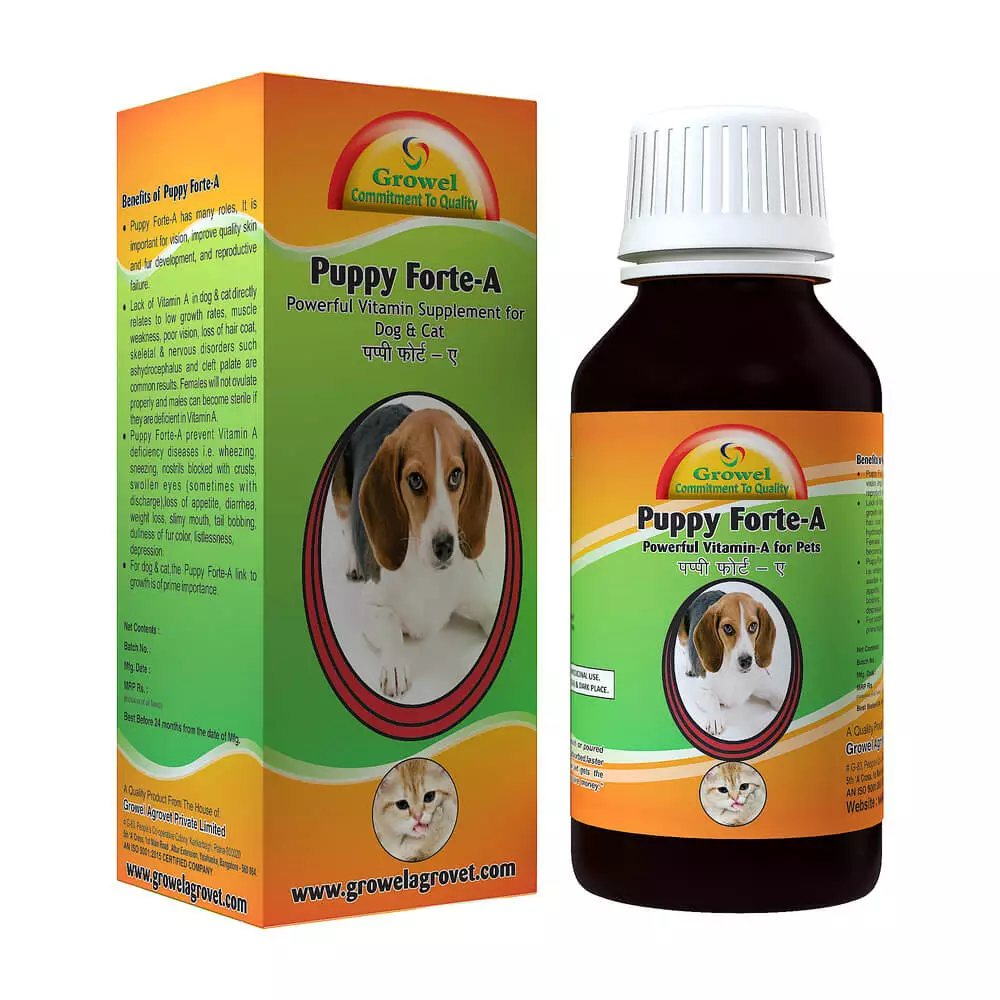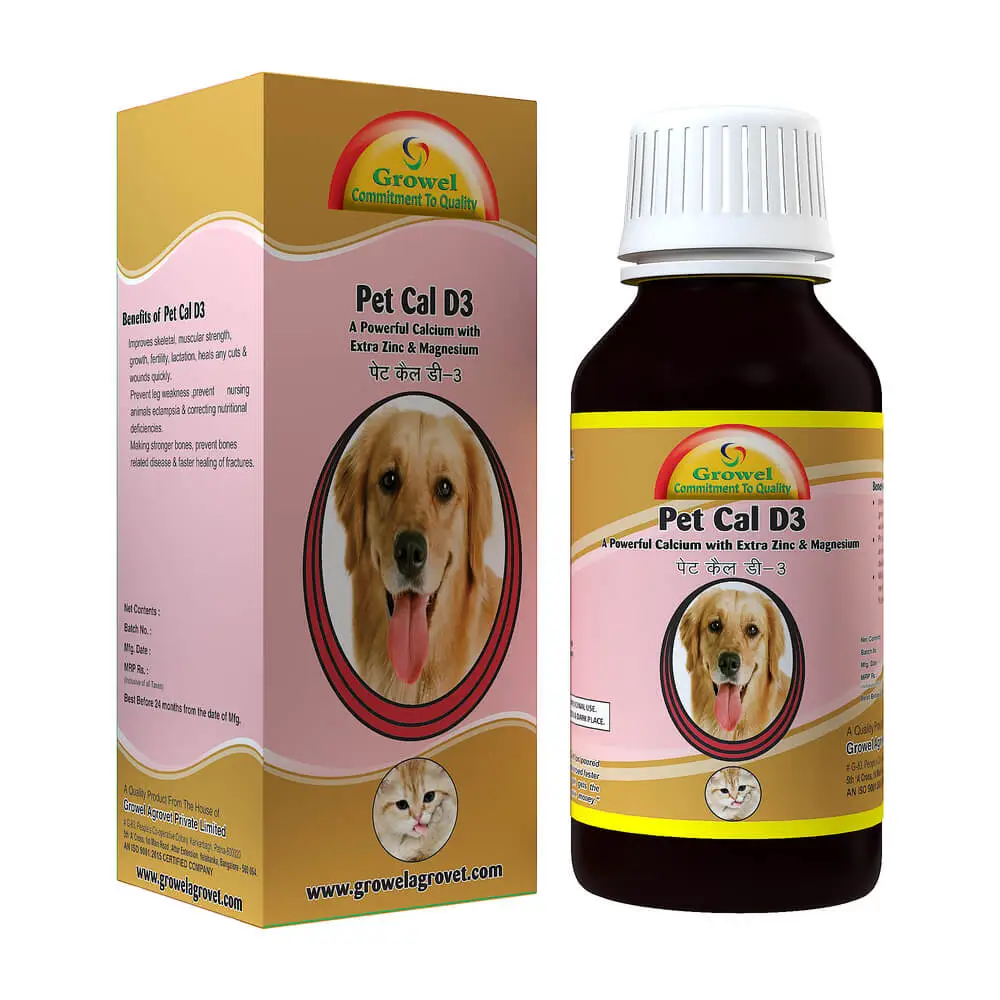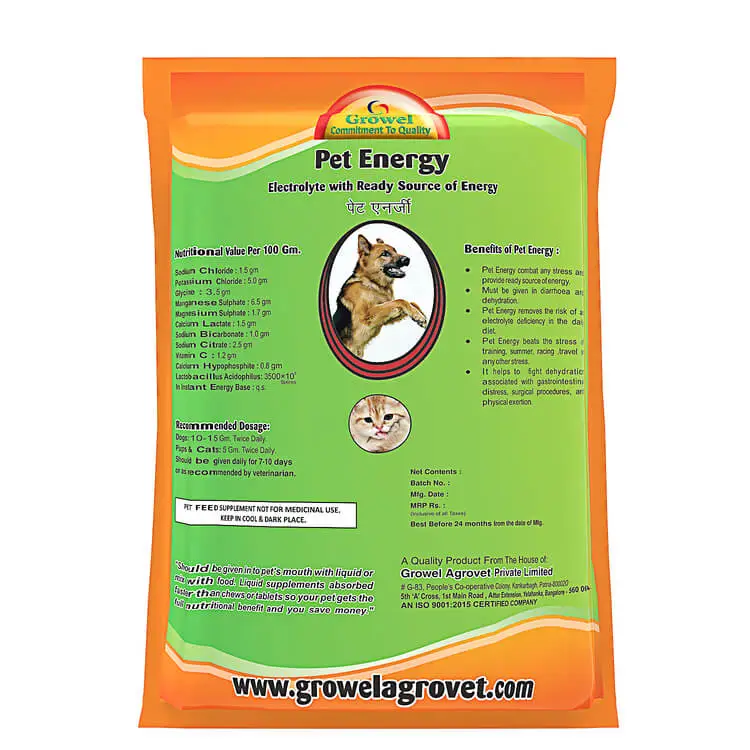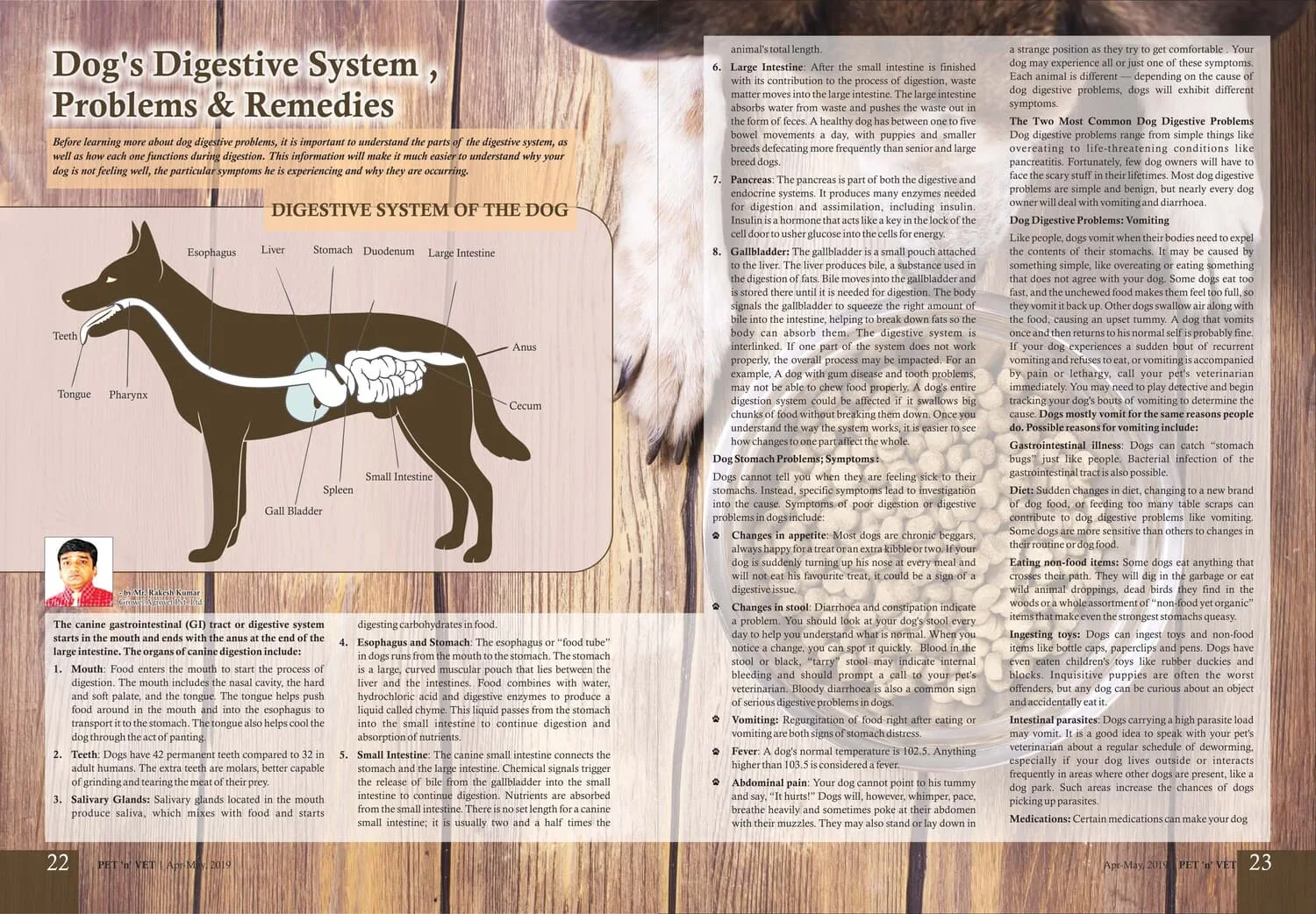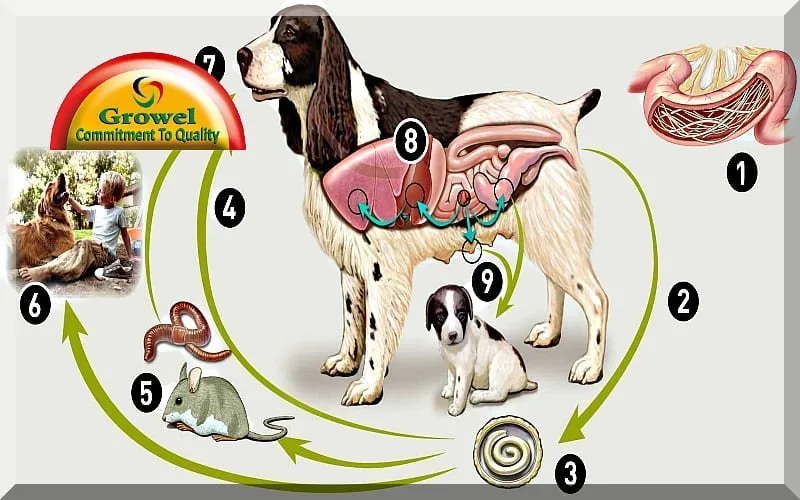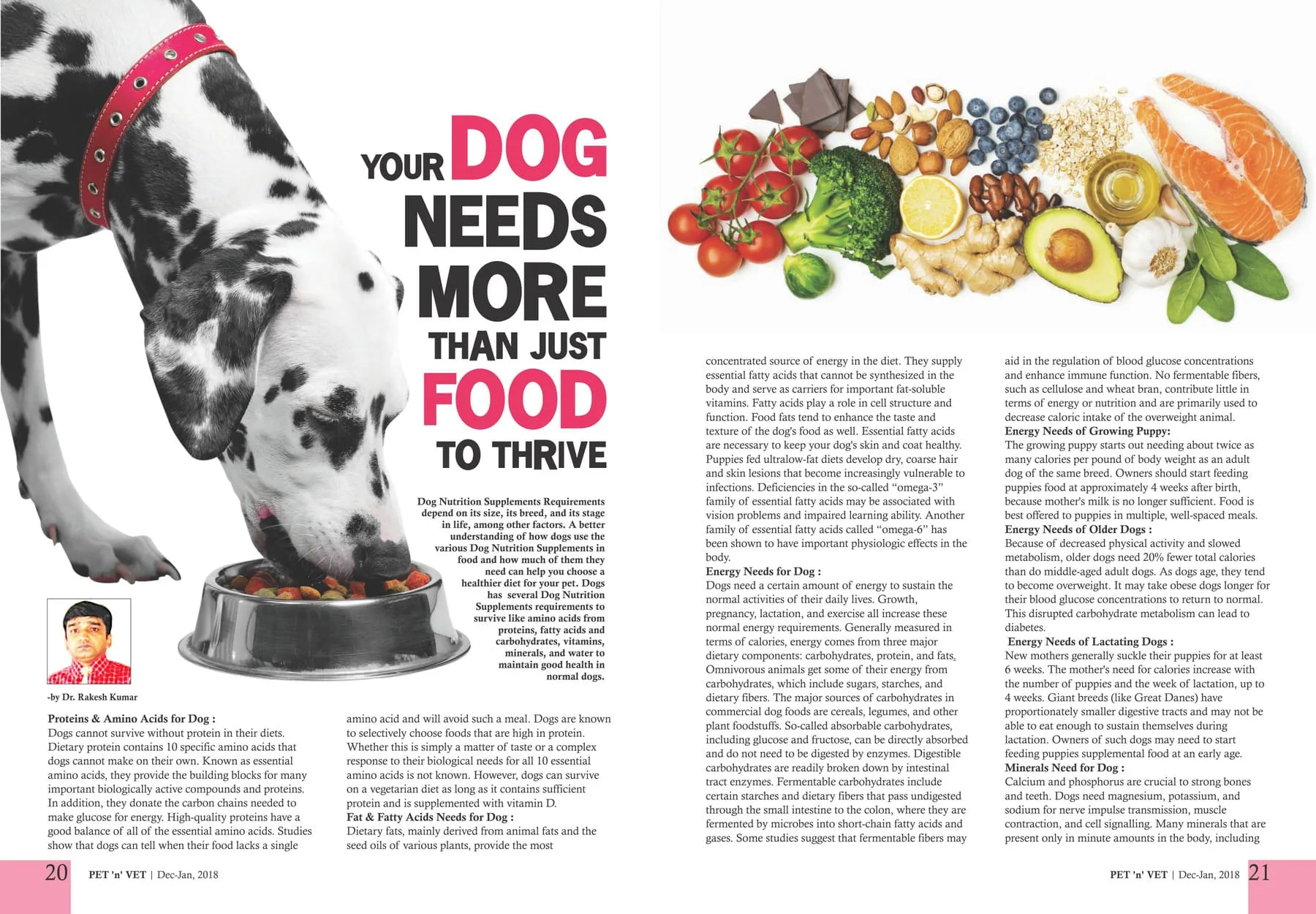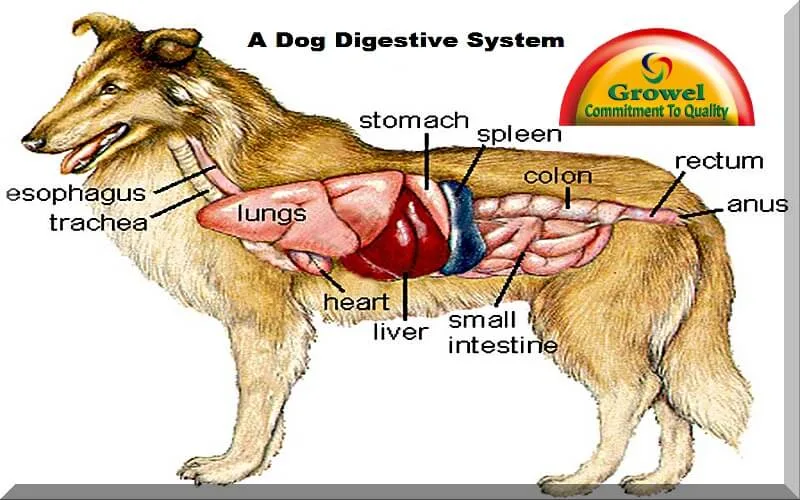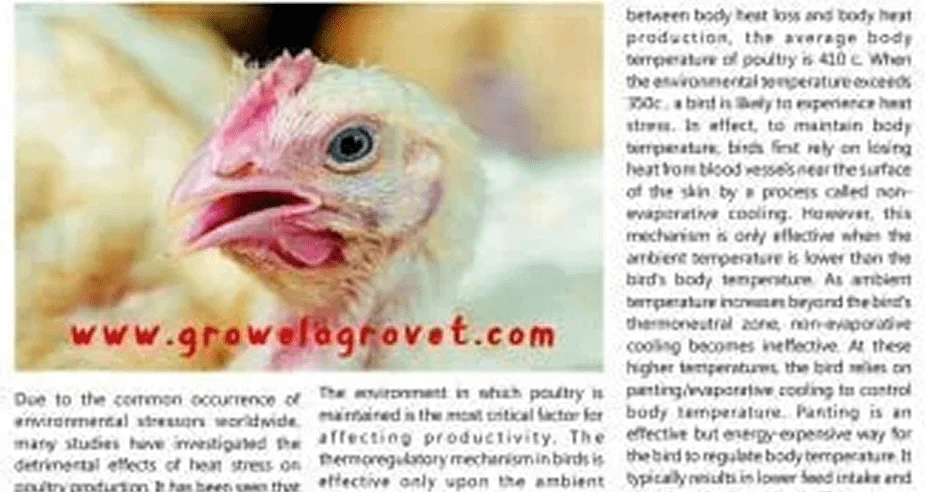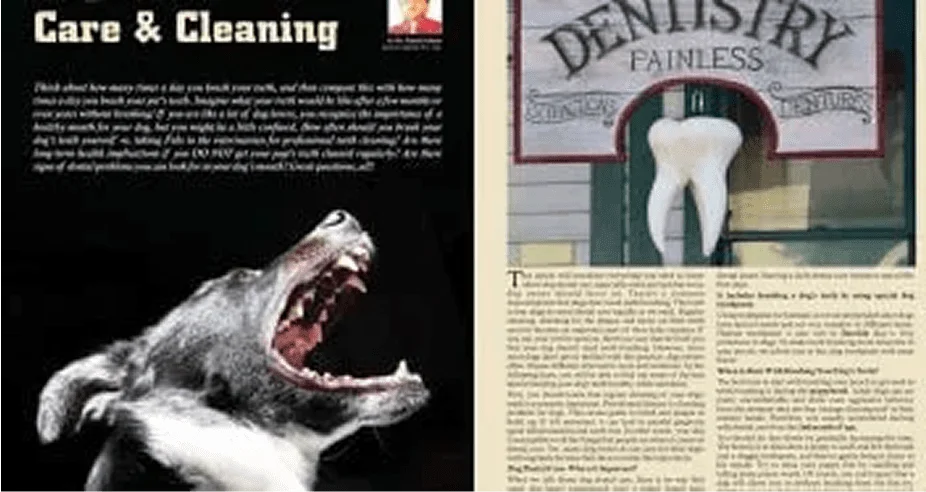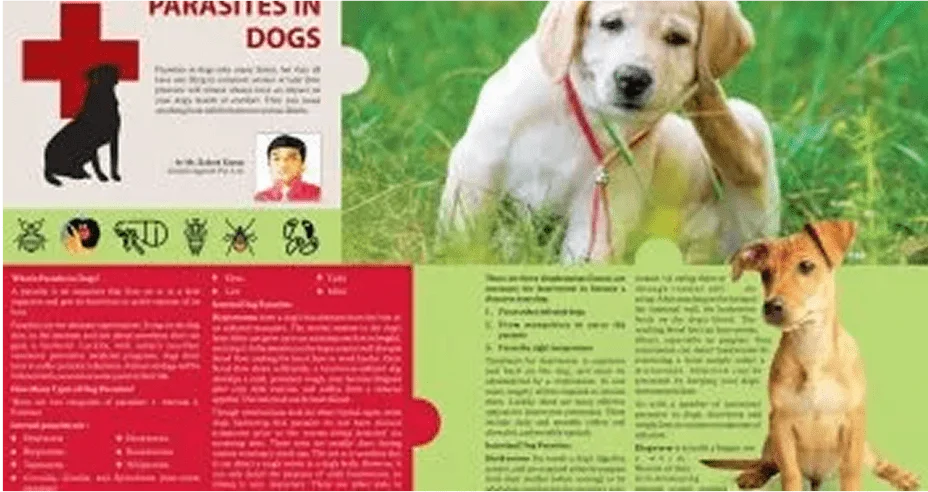 Dog Vitamins,Minerals & Proteins has a great importance of dog’ health. There are eight building blocks of dog nutrition. All these building blocks are required in a well-balanced diet, regardless of the dog. But the amounts of these nutritional elements that each dog needs depends on that dog’s unique situation — puppies and adults need different amounts, as do spayed and pregnant females, and active and inactive dogs.
Dog Vitamins,Minerals & Proteins has a great importance of dog’ health. There are eight building blocks of dog nutrition. All these building blocks are required in a well-balanced diet, regardless of the dog. But the amounts of these nutritional elements that each dog needs depends on that dog’s unique situation — puppies and adults need different amounts, as do spayed and pregnant females, and active and inactive dogs.
As we know dogs are carnivores — meat eaters. Their teeth are shaped for biting, tearing, and grinding flesh and bones, and their intestinal tracts are short, with enzymes that are good for digesting proteins (but not very good at breaking down and absorbing plant material). So it only makes sense that your dog’s diet should be meat based.
Dogs are also opportunists, which means they’ll eat whatever comes their way, including the trash in your kitchen and the grass in your yard. They do gain nutritional benefits from vegetables, fruits, and grains, but they need meat in their diets as their main source of nutrition. So we should take care that diet should have proper blend of Dog Vitamins,Minerals & Proteins.
Dog Proteins Requirements :
Proteins are the most critical component of food for your canine carnivore. They are also the most abundant component of your dog’s body. Your dog needs proteins to produce hair, nails, tendons, cartilage, and all the connective tissues that support the rest of the tissues and organs in her body. Adequate protein is important for your dog’s growth and proper development, her muscle development and strength, a functioning immune system, the production of functioning hormones, the proper volume of blood, injury repair and prevention, and much, much more.
Your dog’s body can also use proteins to produce energy, if necessary. Fats and carbohydrates are much more readily available sources of energy, but dogs can break down proteins and convert them to energy when necessary, such as when food supply is low.
Proteins are made up of amino acids linked in a chain. When your dog eats protein, enzymes that the pancreas secretes into the intestines break them down into shorter chains of amino acids called polypeptides, which are small enough for the intestines to absorb. A dog’s body makes 20 different amino acids — some are essential amino acids and others are nonessential amino acids. As the name implies, your dog requires essential amino acids in his food. Food that contains all the essential amino acids is called a complete protein source. The nonessential amino acids are . . . drum roll, please . . . not essential; if your dog doesn’t get them in his diet, he can convert other amino acids into those that he’s missing.
Your dog can get proteins from both animal and plant sources. But only animal-source proteins are complete protein sources, and not all of them are complete. Examples of complete protein sources that come from animals are eggs, whole milk, and lean meat. Grains are another important source of proteins in dog foods, but they are incomplete protein sources because they don’t contain some of the essential amino acids your dog needs. Plant protein sources frequently used in dog foods include soybeans, wheat, and corn.
Your dog’s major source of protein should be animal products, not grain. Don’t buy a dog food in which soybean meal, soy flour, or corn gluten meal is the primary, or even the secondary, source of protein. Dogs don’t have the enzymes to use grains properly as main sources of protein.
The American Association of Feed Control Officials (AAFCO) is the organization that sets guidelines for the types and amounts of nutrients dogs need in their foods. The AAFCO has determined that foods for adult dogs should contain no less than 18 percent protein, and that foods for lactating females or puppies should have a minimum of 22 percent protein. Military or police dogs, mushing dogs, and other dogs who work hard every day or who are under stress may need more. Dogs recuperating from injuries or surgery may need more protein as well, to repair muscles, tendons, and ligaments.
Not all complete protein sources are created equal. A cow’s hoof and a filet mignon may both have all the essential and nonessential amino acids, but your dog can get the amino acids he needs more easily from the filet mignon than from the cow’s hoof. Some proteins are just more digestible than others. So how do we know which protein sources are digestible and which aren’t? Nutritionists measure the amount of protein in a food, feed it to dogs, and then measure the amount of protein in the dogs’ feces. The difference between how much was in the food to begin with and how much the dog excretes reveals how much of it the dog absorbed, and that is the digestible protein. A protein isn’t very useful to your dog if it ends up on your lawn rather than in his body. Hair and feathers are a cheap source of protein, too — but they’re indigestible. On the other hand, eggs are highly digestible but expensive. Not surprisingly, the more digestible the protein, the more expensive the dog food. As with many things in life, you get what you pay for.
Beware of foods that advertise over 90 percent digestibility. The highest quality dog foods are 82–86 percent digestible, whereas economy foods (inexpensive brands you get in grocery stores) are around 75 percent. The percent digestibility of a dog food is not stated on the label, but most dog food manufacturers provide that information on request. If your dog’s feces are voluminous, it may be a sign that his food isn’t highly digestible.
Dog Fats Requirements:
Fats are the major source of energy for dogs. Dogs who live outdoors in the cold need more fat to supply them with the energy to keep warm. And police dogs and working dogs need enough fat so they don’t have to get their energy from carbohydrate or protein supplies. But fats do more than provide your dog with energy. They also help keep skin and foot pads supple and coats healthy. Supplying an allergic dog withthe proper amount and type of fats can make a huge difference in how much she scratches. Fats also carry fat-soluble vitamins into the body from the intestines. These vitamins are essential for health, and the only way your dog can absorb them is if she eats enough fat to carry them into her body. Plus, just as with our own food, fat makes a dog’s food tastier, which can be important in helping dogs who are ill to eat enough.
Fatty acids are the major component of fat. Dogs really need only omega-6 fatty acid (linoleic acid), because they can’t make it on their own. Linoleic acid keeps your dog’s skin supple and pliable, and her pads and nose leather flexible. Dogs lacking linoleic acid have scruffy, dry coats and dry, cracked pads. Luckily, dogs don’t need a lot of linoleic acid. Good sources are beef, pork, chicken, and the oils from corn, safflower, and soybeans. Omega-3 fatty acids can also help dogs with allergies by controlling the inflammatory responses in their skin. Omega-3s can improve dry skin and decrease stiffness from arthritis. But omega-6 and omega-3 fatty acids have some opposing functions, so you need to be sure that your dog is getting a balance between these two components. Shoot for a ratio of omega-6 to omega-3 fatty acids of about 5 to 1. Your dog is better off if her food has the correct ratio of omega-6 to omega-3 fatty acids than if you try to provide it in supplement form. Look for dog foods that have safflower oil or corn oil for omega-6 fatty acids, and fish oil or fish meal for omega-3 fatty acids. The ratio of omega-6 to omega-3 fatty acids is listed on the bags of some of the better-quality foods, so if your dog is having skin problems, opt for a higher-quality food — and one with the correct ratio of omega-6 to omega-3.
Although your dog needs fat in her diet, too much fat can contribute to obesity, the number one nutritional problem in dogs. Excessive fat can also slow the digestive process and may cause nausea, diarrhea, and vomiting. High-fat diets also play a role in the development of pancreatitis, an inflammation of the pancreas that can result in very severe vomiting and sometimes even death. So you need to control the fat levels in your dog’s diet. Feeding a high-quality dog food (and not giving lots of extras), watching your dog’s weight, and making sure that she gets enough exercise is the best way of ensuring that she won’t become obese. On the other hand, that doesn’t mean a low-fat diet is good for dogs. Too little fat can lead to dry, flaky skin; dry, cracked pads; and a dull coat.
Be sure to read the dog food label before choosing a diet for your dog and observe your dog’s response to the food. If you don’t like the appearance of your dog’s coat and skin on one diet, try a different one.
Dog Carbohydrates Requirements :
Every cell in your dog’s body needs a continuous supply of carbohydrates, particularly in the form of glucose, to function properly. In fact, it is so important for cells to have glucose that the body produces the hormone insulin to drive glucose into the cells. Glucose is especially important for your dog’s brain and muscles. Carbohydrates also assist in the digestion of other nutrients, especially fats. Your dog’s carbohydrate requirements vary according to his level of activity, health, and overall energy needs.
Carbohydrates come in three basic forms: sugars, starches, and cellulose. Sugars and starches are simple carbohydrates because they are readily available as glucose or can be broken down into glucose. Good sources of simple carbohydrates are rice, oatmeal, corn, and wheat. Simple carbohydrates are easy for your dog to digest when properly cooked; they also add texture to the food, making it more palatable. Cellulose, the main carbohydrate found in the stems and leaves of plants, is a complex carbohydrate. Dogs don’t have the enzymes to digest cellulose (most animals don’t), but it serves as fiber, helping regulate water in the large intestine and aiding formation and elimination of feces.
The best foods use the carbohydrates that come in grains; sugar need not be added to food, although some manufacturers do this to make it taste better. The AAFCO has no recommended minimum or maximum levels of carbohydrates in dog foods. Carbs make up the remainder of the bulk of the food after fats, proteins, fiber, and vitamins and minerals have been added.
Dog Fiber Requirements :
Fiber is an important component of dog food. It provides bulk to the food and helps the intestinal contents absorb water, which results in formed stools that are readily expelled. If a food has too little fiber, the dog may have loose stools, because there is nothing to help the stools form. If a food has too much fiber, it will pass much more quickly through the gastrointestinal system, making digestion less efficient and the stools hard and compacted.
Beet pulp is an excellent source of fiber. It is the dried residue from sugar beets, which first have been cleaned and freed of crowns, leaves, and sand, and then used to extract sugar for human foods. Dried tomato pomace is another good source of fiber. It is the dried mixture of tomato skins, pulp, and crushed seeds, a byproduct of the manufacture of tomato products. Most dog foods contain between 3 and 6 percent fiber. Weight-reduction diets may have between 8 and 25 percent fiber.
Dog Water Requirements :
Water is the most plentiful molecule in your dog’s body (your dog’s body is two-thirds water) and is essential for every function, from digesting food to dashing across the yard. In the gastrointestinal tract, water dissolves nutrients to prepare them for digestion and helps transport the nutrients across the intestinal wall.
Your dog loses water by several routes, through salivation and respiration, and in urine and feces. If your dog loses more water than she takes in, she will suffer from dehydration, which, if severe and untreated, can be fatal. Every dog should have access to clean, fresh water at all times.
Dog Enzymes Requirements :
Enzymes play a role, often in conjunction with vitamins, in just about every body reaction. They are like the keys that unlock the doors to chemical reactions. Each enzyme is the catalyst for one specific reaction, which is why so many different enzymes exist. The pancreas secretes several kinds of enzymes that assist in digestion. In addition to enzymes secreted by the pancreas, enzymes are present in fresh foods.
In most dogs, the pancreas produces sufficient enzymes for digestion. However, in some dogs, pancreatic function is not optimal. Older dogs frequently have trouble fully breaking down their foods for optimal absorption of nutrients, as do dogs with pancreatitis (inflammation of the pancreas) or pancreatic cancer.
Dog Vitamins Requirements :
Dogs require 14 different dog vitamins. With only a few exceptions, dogs don’t make the vitamins themselves, which means they must get these vitamins in their food. Vitamins participate in numerous chemical reactions that help to release the needed nutrients from food and help the dog’s body put those nutrients to use. Vitamins can be either water soluble or fat soluble.
Water-soluble Dog Vitamins :
Water-soluble dog vitamins have to be supplied on a daily basis, because they are continually broken down and excreted. They include the following:
Thiamin (vitamin B1): Promotes a good appetite and normal growth. Required for energy production.
Riboflavin (vitamin B2): Promotes growth.
Pyridoxine (vitamin B6): Aids in the metabolism of proteins and the formation of red blood cells.
Pantothenic acid: Required for energy and for protein metabolism.
Niacin: Exists in many enzymes that process carbohydrates, proteins, and fats.
Vitamin B12: Necessary for DNA synthesis and intestinal function.
Folic acid: Works together with vitamin B12 and in many of the body’s chemical reactions.
Biotin: Acts as a component of several important enzyme systems.
Choline: Required for proper transmission of nerve impulses and for utilization of sulfur-containing amino acids.
Vitamin C: Participates in the formation of bones, teeth, and soft tissue. The daily requirements for each of these vitamins are supplied in premium dog foods. Generally, an excess of these water-soluble vitamins is harmless because they are excreted in the urine. As long as your dog is eating a high quality complete and balanced commercial diet and is healthy, you don’t need to worry about supplementing her diet with water-soluble vitamins.
Fat-Soluble Dog Vitamins :
Fat-soluble vitamins don’t have to be supplied in the food every day because excess levels are stored in a dog’s body’s fat. Long-term storage means that they can accumulate to toxic levels, but this is very rare. Your dog needs the following fat-soluble vitamins:
Vitamin A: Necessary for proper vision, especially night vision. Important in bone growth, reproduction, and maintenance of tissues such as the lungs, intestines, and skin.
Vitamin D: Critical to the dog’s ability to use calcium and phosphorus for bone and cartilage growth and maintenance.
Vitamin E: An antioxidant that protects the cells (and dog food) from oxidative damage. Important for muscular and reproductive function.
Vitamin K: Essential for normal blood clotting.
Dog Minerals Requirements :
Minerals are present in small amounts in the tissues of all living things.Teeth, bones, muscles, and nerves have especially high mineral content. Although the AAFCO provides guidelines for the minimum amounts of minerals necessary for canine growth and development, each dog’s mineral requirements depend on the current nutritional state. For example, if a dog is iron deficient, he will need and absorb more iron from the intestinal tract. Working dogs and ill or stressed dogs may also have higher requirements.
Minerals can be divided into two groups: major minerals and trace minerals. The major minerals are required in gram amounts each day, whereas the trace minerals are required in milligram or micro-gram amounts per day. Of the trace minerals, several are known to be required for canine health, and the roles of others are less understood.
Your dog’s body needs to maintain a delicate balance between the various major and trace minerals. For several trace minerals, the line between the required amount and toxic levels is a thin one. So supplementing an already balanced dog food with minerals can create more problems than it solves.
Following table shows lists the different minerals for dog and which foods are good sources of these minerals.
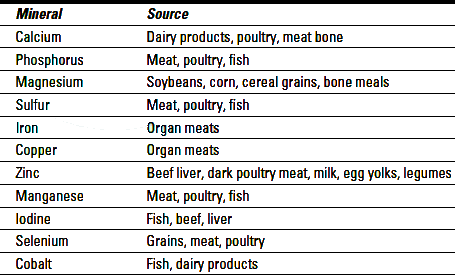
Major Dog Minerals:
The four major minerals are calcium, phosphorus, magnesium, and sulfur. Calcium and phosphorus are the most important minerals in all dogs’ diets, especially in the diets of growing puppies. Calcium is needed for muscle contraction, nerve transmission, and blood coagulation. It is also required to activate numerous enzymes that affect virtually every process in the cell. Phosphorus plays a part in nearly all chemical reactions in your dog’s body. Both strengthen your dog’s bones and teeth.
Although the ratio of calcium to phosphorus in a dog food is important, the total amount of calcium ingested may be more important. Excess calcium is thought to contribute to the development of hip and elbow dysplasia, osteochondrosis dissecans (degeneration of the joint cartilage), and other bone and joint problems. Calcium deficiencies frequently occur in dogs who are fed all-meat diets. A severe deficiency of calcium can cause rickets and bone malformations. A moderate deficiency can cause muscle cramps, impaired growth, and joint pain.
As of this writing, all premium-quality adult maintenance dog foods produced by major manufacturers have enough calcium to support the healthy growth of puppies, including those of giant breeds. Resist the urge to provide extra supplementation of vitamins and minerals, particularly those containing calcium, to your growing puppy on a premium dog food.
Never add bone meal to a complete and balanced diet. Not only are you likely to alter the critical calcium to phosphorus ratio, but you also risk decreasing your dog’s ability to absorb and utilize many of the other minerals he needs.
Magnesium is essential for many enzymatic reactions. It also helps promote the absorption and metabolism of many other vitamins and minerals, including vitamins C and E, calcium, and phosphorus. As with calcium and phosphorus, magnesium is important in bone growth and development. In fact, 70 percent of the magnesium in your dog’s body is in his bones. Magnesium is rarely deficient in complete and balanced diets. However, its absorption can be impaired when the diet is too high in calcium and phosphorus.
Your dog needs sulfur for the synthesis of a variety of components in his body, most notably proteins. Sulfur is also an important constituent of joint fluid and cartilage and, thus, is important for proper joint health.
Dog Trace Minerals:
Your dog needs only very small amounts of trace minerals in her diet. Trace minerals are found in meat and grains and are provided as a supplement in complete and balanced premium dog foods. A balanced diet is still the best source for all the vitamins and minerals required for optimum health.
Dog Trace Minerals Includes the Following Minerals :
Iron: Iron is present in every cell in the body. It is particularly important, along with protein and copper, for the production of red blood cells, which are responsible for transporting oxygen from the lungs to every part of the body. Dogs with iron deficiency develop anemia. But remember, iron is needed in only small amounts, so it is important that you not supplement with iron unless you have a prescription.
Zinc: Zinc is important in the metabolism of several vitamins, particularly the B vitamins. It is also a component of several enzymes needed for digestion and metabolism, and it promotes healing as well. Your dog needs zinc for proper coat health. Some breeds of dogs, particularly the northern breeds such as Siberian Huskies, appear to have problems with absorption and/or utilization of zinc. These dogs develop poor coats and dry, scaly skin with sores (particularly on the nose and mouth) and stiff joints unless they are supplemented with zinc.
Copper: Copper is a trace mineral that has many different functions. It is needed for the production of blood and for the proper absorption of iron. It is also involved in the production of connective tissue (the cells and extracellular proteins that form the background structure of most tissues) and in healing. Copper is found in fish, liver, and various grains. The amount of copper in a grain is related to the level of copper in the soil where the grain was grown. A copper deficiency can result in anemia and skeletal abnormalities. Some breeds of dogs, such as Bedlington Terriers and Doberman Pinschers, can have a genetic problem that interferes with the metabolism of copper. In these dogs, copper is stored in the liver to toxic levels, resulting in hepatitis.
Iodine: Iodine is critical for the proper functioning of the thyroid gland, which regulates the body’s metabolism and energy levels and promotes growth. Iodine is found in high levels in fish. It is added to most dog foods to make the levels sufficient for canine health.
Selenium: Selenium works with vitamin E to prevent oxidative damage to cells. It is needed in only minute amounts in the diet. Meats and cereal grains are good sources of selenium. In dogs, an excess of selenium results in death of the heart muscles, as well as damage to the liver and kidney. Deficiency results in degeneration of heart and skeletal muscles.
Manganese: Manganese is a component of many different enzyme systems in the body. Most important, it activates enzymes that regulate nutrient metabolism. It is found in legumes and whole-grain cereals; animal-based ingredients are not a good source of manganese.
Cobalt: Cobalt is a part of vitamin B12, which is an essential vitamin. Cobalt does not appear to have any function independent of vitamin B12.
In addition to these trace minerals, other trace minerals known to be important in laboratory animals but with an unclear role in dogs include molybdenum, cadmium, arsenic, silver, nickel, lead, vanadium, and tin.
As scientists discover more about the nutritional needs of dogs, they are beginning to recognize that our canine companions may need different nutrient levels for optimal health than they need just to prevent deficiencies.So we should supplement our dog proper & regular Dog Vitamins,Minerals & Proteins. You should also read Dog Nutrition Supplements Requirement
You can join Dog & Pet Healthcare Facebook group for getting regular guidance of yours dogs & pet’s health.

 Dog Vitamins,Minerals & Proteins has a great importance of dog’ health. There are eight building blocks of dog nutrition. All these building blocks are required in a well-balanced diet, regardless of the dog. But the amounts of these nutritional elements that each dog needs depends on that dog’s unique situation — puppies and adults need different amounts, as do spayed and pregnant females, and active and inactive dogs.
Dog Vitamins,Minerals & Proteins has a great importance of dog’ health. There are eight building blocks of dog nutrition. All these building blocks are required in a well-balanced diet, regardless of the dog. But the amounts of these nutritional elements that each dog needs depends on that dog’s unique situation — puppies and adults need different amounts, as do spayed and pregnant females, and active and inactive dogs. 